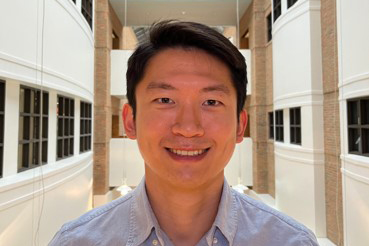Yongmo Park awarded IBM PhD fellowship to support his research on in-memory computing systems

PhD student Yongmo Park has been awarded an IBM PhD fellowship to support his research regarding neuromorphic computing systems, which are important for AI/cognitive computing and security. Park focuses on the development and applications of in-memory computing (IMC) systems based on resistive random-access memory (RRAM, or memristor) devices, which can accelerate AI computing.
“Yongmo Park is an exceptional researcher and a remarkable person, and I have been very lucky to have him in my group,” said Prof. Wei Lu, Park’s doctoral advisor.
Memristors have a variable resistance that can serve as a form of information storage. Because memristors store and process information in the same location, they can get around the biggest bottleneck for computing speed and power: the connection between memory and processor. To further advance these devices, Park designed and fabricated a redox-based memristor, which led to a publication in Advanced Electronic Materials in 2021.
Park has also helped develop IMC architecture that maps practical, large-scale deep neural networks onto realistic RRAM crossbar arrays, while maintaining high performance and accuracy. In addition, he’s helped advance Homomorphic Encryption (HE), which can be a game changer in enabling secure data sharing and processing at cloud providers. Specifically, Park designed an IMC scheme based on realistic RRAM arrays to address the hardware challenges of implementing HE.
“Since cryptosystems are inherently sensitive to noises, I am currently investigating the design factors of the IMC system to meet the precision,” Park said.
Park earned his BS in Electrical and Electronic Engineering from Yonsei University, Seoul, Korea.
 MENU
MENU 
